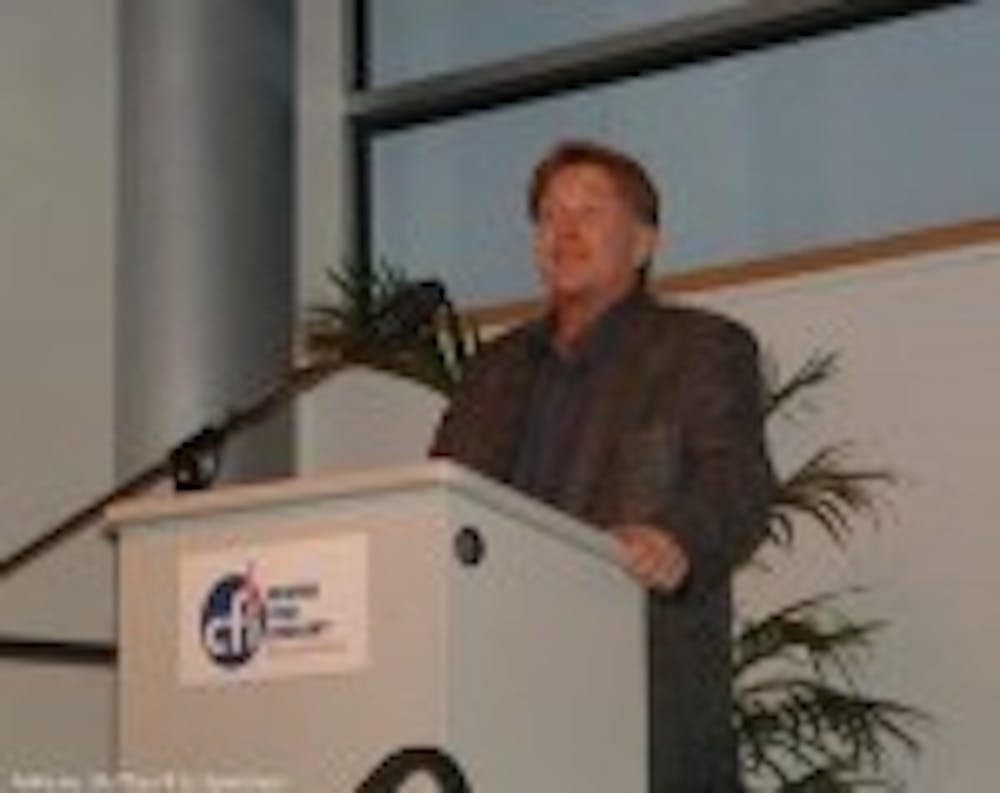As a SUNY Oswego sociology professor, Tim Delaney would often use "Seinfeld" references in his classes to illustrate basic sociological principles.
He attempted to do the same on Friday evening at the Center for Inquiry, but his lecture, plugging his new book "Seinology: The Sociology of Seinfeld," did little more than summarize episodes of the popular sitcom; failing to bring up any connections to sociology.
"Seinfeld was and remains a sociological phenomenon," Delaney said.
Using props like a tiny puffy shirt, a black and white cookie and Junior Mints, Delaney gave a synopsis of various Seinfeld episodes for his audience.
Delaney would name a topic such as "mental health," and then summarize the Seinfeld episode -- in this case, "Serenity Now," where mental health and bottling emotions is the focus. Rather than actually discussing anything scientific, however, Delaney would name the episode number -- in this case 159 --- and then say the page it correlates to in his book -- in this case, page 246.
One of the last topics he discussed was the episode in which characters use the phrase "Yada yada yada" throughout.
"Interestingly, the 'yada, yada, yada' is what sociology is all about: the details," Delaney said. Ironically, he opted not to elaborate any further.
Delaney also quoted television-viewing statistics that point to the popularity of the show. Seinfeld was the third highest watched series finale in history with 76.3 million viewers. MASH was number one with 105.4 million and Cheers is second with 80.4 million.
Other episodes Delaney summarized and, in some cases, acted out were the "Dinner Party," "Soulmate," and "The Wizard." Though these are the episodes Delaney chose to reiterate, he said his favorites were the episode where Cosmo Kramer has the Merv Griffith set in his living room and "The Strike."
Sheri Katz, a sophomore speech and hearing science major, attended the lecture on Friday. She said she enjoyed the lecture but would have preferred if Delaney had showed actual clips of the show.
"It was interesting," Katz said. "If you knew the show well, it was easy."
Chris Mecca, a freshmen psychology major, also attended and said enjoyed Delaney's use of props, especially since he won the black and white cookie Delaney presented when discussing that particular episode of Seinfeld.
"I really enjoyed it," Mecca said. "I've always been a fan (of Seinfeld)."
For Mecca as well as Katz, the only improvement would have been to use actual clips from the show rather than to have Delaney on stage presenting a "new" form of study.
With the lack of connections between Seinfeld and sociology, however, the lecture was much like the show: about nothing.





